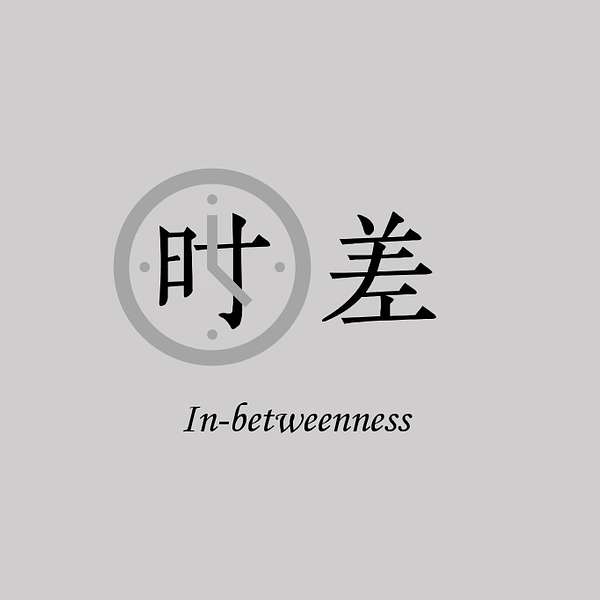
时差 in-betweenness
可能是一个生成中的青年学术共同体。Mandarin Chinese podcast for early(ish) career scholars from the Chinese speaking world talking stuff. Twitter: @shichapodcast
时差 in-betweenness
#11 民族建构,文化身份,他者想象 | Constructing ethnicity, imagining otherness
Use Left/Right to seek, Home/End to jump to start or end. Hold shift to jump forward or backward.
嘉宾:
王菁(上海纽约大学)
罗钰(香港城市大学)
主播:张晨晨 (@chenchenzh) & 林垚 (@dikaioslin)
这期节目我们和两位分别关注西北和西南地区的人类学者一起聊了聊民族建构,身份认同和他者想象。当代中国语境中的“民族”一词是怎么来的,“民族识别”又是一个怎样的过程?我们谈了民族身份建构中语言、文化和宗教等因素的盘根错节,自上而下和自下而上力量的互动,西北和西南地区文化地景的差异,“原住民”这个词的政治意义,“原生态”概念的流行背后的汉族与都市凝视等等问题。最后我们把视角转移到网络舆论中的反穆与恐穆言论,反思全球背景下近年来反穆话语采用的词汇和诠释框架的流变,以及普通穆斯林群体对网络恐穆话语的回应。
【时间轴】
3:20 如何对现在的研究主题产生兴趣?作为“外部人”与“内部人”的人类学者
14:00 田野调查中的positionality
16:30 山东与福建县城对不同族群身份的日常认知
25:40 “民族”概念的谱系,“民族识别”的过程
35:00 民族概念的建构中苏联、日本与西方思想资源的影响,种族概念的影响
40:00 历史上的族群身份与宗教
49:00 nation, ethnicity, 国族,民族,族群,这些词汇之间的关联和差异
52:00 什么是原住民或原住民族(indigenous people)?
57:00 “归化”作为“civilizing project”是单向的吗?
1:05:00 自上而下与自下而上力量的互动
1:11:00 “原生态”概念中的猎奇心态和他者想象
1:21:40 网络“穆黑”话语的兴起,穆斯林恐惧症(Islamophobia)的本土资源和国际背景
1:30:30 全球反恐战争和全球恐穆话语
1:36:00 国内反穆“剧本”的迭代更新,与国际反穆话语的合流
1:42:00 穆斯林群体对反穆话语的回应
1:50:00 “民俗旅游”,东方主义与自我东方主义
【嘉宾作品】
Luo, Y. (2018). Alternative indigeneity in China? The paradox of the buyi in the age of ethnic branding. Verge: Studies in Global Asias, 4(2), 107-134.
Luo, Y. (2018). An Alternative to the “Indigenous” in Early Twenty-First-Century China: Guizhou’s Branding of Yuanshengtai. Modern China, 44(1), 68-102.
Luo, Y., Oakes, T., & Schein, L. (2019). Resourcing remoteness and the ‘post‐alteric’ imaginary in China. Social Anthropology, 27(2), 270-285.
Wang, J. (2021). Between merchant network and memory work: Islamic cosmopolitanism along the Silk Road. Asian Anthropology, 1-18.
Wang, J. (2020). Limits of multicultural imagination and the anti-refugee controversy in contemporary China. Journal of Contemporary Eastern Asia, 19(2), 125-147.
Wang, J. (2019). Tiptoeing along the red lines. On Chinese Muslims’ use of self-censorship in contemporary China. Terrain. Anthropologie & sciences humaines, 72.
Wang, J. (2021). Witnessing Disappearance in China during the Global Pandemic. Anthropology News.
【其他推荐】
Kaup, K. (2000). Creating the Zhuang: Ethnic Politics in China
Sultana, F. (2007). Reflexivity, positionality and participatory ethics: Negotiating fieldwork dilemmas in international research. ACME: An international journal for critical geographies, 6(3), 374-385.
Luqiu, L. R., & Yang, F. (2018). Islamophobia in China: news coverage, stereotypes, and Chinese Muslims’ perceptions of themselves and Islam. Asian Journal of Communication, 28(6), 598-619.
Smith, L. T. (1999). Decolonizing methodologies: Research and indigenous peoples. Zed Books Ltd.
Mullaney, T. (2011). Coming to terms with the nation: Ethnic classification in modern China. University of California Press.
Harrell, S. (1995). Cultural encounters on China’s ethnic frontiers. University of Washington Press.
Harrell, S. (2002). Ways of being ethnic in Southwest China. University of Washington Press.
Chio, J. T. (2014). A landscape of travel: The work of tourism in rural ethnic China. University of Washington Press.
Schein, L. (1997). Gender and internal orientalism in China. Modern China, 23(1), 69-98.
Gladney, D. C. (1996). Muslim Chinese: ethnic nationalism in the People's Republic (No. 149). Harvard Univ Asia Center.